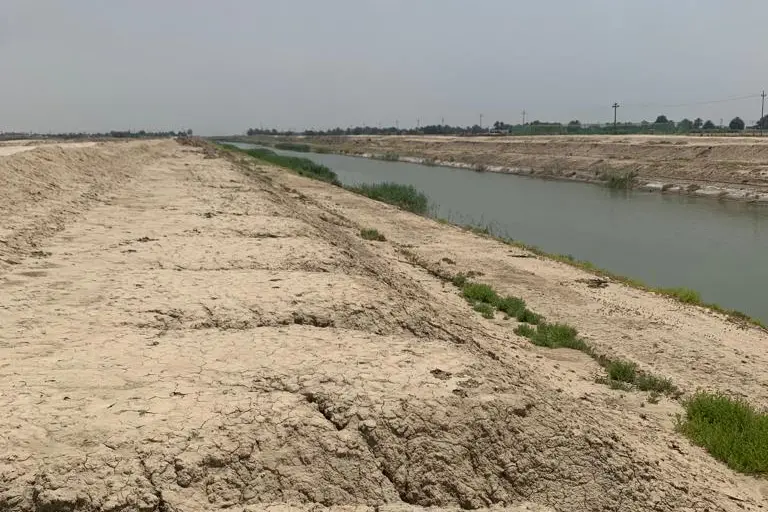PHOTO
The State of Kuwait and the countries on the Arabian Peninsula are exposed to large amounts of dust as a result of sand and dust storms that arise and blow on the region due to several natural and human factors. Such factors cause harm to general health and respiratory system, in addition to environmental pollution and climate change.
Dust also has negative economic and social impacts as it could affects various economic sectors such as closing airports and ports, disrupting air and sea traffic, and disrupting road transport. Furthermore, dust could impact negatively on agricultural and livestock production and cause crop damage that would result in negative financial revenues. Finally, exposure to dust may lead to a raise in health costs, including an increase in diseases related to prolonged exposure to dust, as mentioned earlier, causing a raise in health spending that would ultimately exhaust the State’s budget allocated to the health sector.
According to the average number of dust days per year study, for the period of 2000 to 2021, by the climate monitoring statistics of the Meteorological Administration, the average number of dust days in the State of Kuwait during a year is about 137 days. The dust in these days varies from dust storms, to blowing or rising dust storm, and suspended dust storm. They abound during the summer months of May, June, July and August as there are 8 local and external wind tracks that raise dust on the State of Kuwait that are equivalent to 60 tons per square kilometer, causing health and environmental problems with estimated losses at about KD 190 million per year.
Therefore, several government bodies in the State of Kuwait, including Kuwait Fund for Arab Economic Development, Meteorological Administration of the Directorate General of Civil Aviation, Kuwait Institute for Scientific Research, Environment Public Authority, Petroleum Corporation, and Kuwait University, in agreement with the United Nations Human Settlements Programme (UN-HABITAT), backed the first phase of the project "Adaptation and Resilience to Combat Transboundary Sand and Dust Storms in the State of Kuwait”. The project is to treat and stabilize the soil in two of the sandstorm sources, which are the governorates of Dhi Qar and Muthanna with an area ranging from 150 to 200 square kilometers located in Iraq between the Tigris and Euphrates rivers, and 250 km from the border of the state of Kuwait.
Kuwait Fund for Arab Economic Development will finance the project as the duration of its first phase will take 5 years at a cost of about KD 4 million. It is expected that the project will contribute to reducing more than 40% of the dust passing over the State of Kuwait. The reduction of dust locally, regionally, and internationally requires concerted efforts by all those living on this planet and the adoption of the concept of sustainability and environmental conservation. Such a cooperation will result in preliminary results in monitoring climate changes and weather conditions in the cities of Kuwait to identify the positive impact of the UN-Habitat project to combat transboundary dust. Also, cooperation, exchange of climate studies, and data related to Kuwaiti cities are to be carried out to identify the most affected by dust storms.
The importance of the early stages of the project comes in identifying the main causes that lead to the formation of sand and dust storms in terms of climatic, geological, and chemical factors. This can be achieved through the use of specialized programs to find appropriate solutions to protect and raise the possibilities of adaptation and resilience in areas suffering from these storms, and, thus, absorb and mitigate its negative effects. In addition, other solutions include the implementation of infrastructure enhancement works in the project areas, soil treatment and protection, as well as providing water for greening and tree planting, and building meteorological observatories (early warning centers).
In this regard, a grant agreement was concluded on October 27th 2021 between Kuwait Fund for Arab Economic Development and the United Nations Human Settlements Programme (UN-Habitat) to finance the project. A number of technical cooperation agreements have been signed between the program and partners.
It should be noted that the actual implementation of the preliminary works began in the first quarter of 2023, where the necessary basic data and technical information, to determine the locations of storm hotspots, were collected for study and analysis, in cooperation with partner agencies, in both the Republic of Iraq and the State of Kuwait. The project’s implementation works are being carried out properly.
The project was launched in February 2023, and it follows a three-pronged approach: It improves the knowledge base and the understanding of the conditions that create sand and dust storms, as well as their impact on human health, and the needed prevention and mitigation measures. Secondly, it makes a substantial effort to restoring ecosystems in the source areas of sand and dust storms. Thirdly and most importantly, it helps to enhance the resilience and capacity of local authorities, and of the most vulnerable communities in Southern Iraq, to adapt to the impact of desertification and to contribute to mitigating the root causes of sand and dust storms.
The United Nations Human Settlements Programme (UN-HABITAT) and Kuwait Fund for Arab Economic Development hope to reduce the risks of sand and dust storms, and improve living conditions in Kuwait and the region, and aim at brining on board other Gulf countries that are affected by sandstorms to expand on the coverage of this regional initiative to combat desertification and reduce the impact of this environmental phenomenon.




















